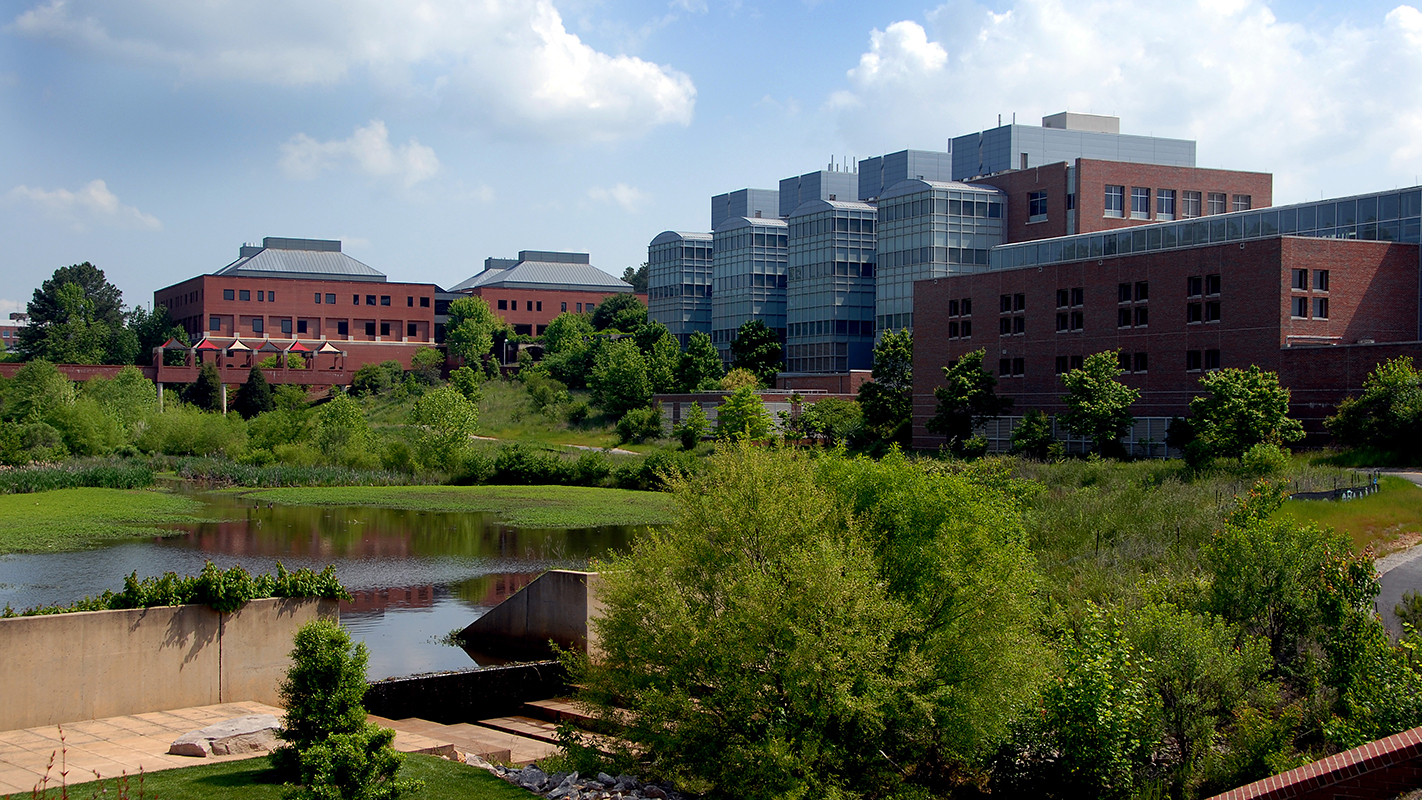What do you give the research campus that has everything? In the case of Centennial Campus, nothing fits better than an award honoring the campus as one of the nation’s most innovative and productive economic engines.
That’s exactly what North America’s oldest higher education association delivered to NC State on Tuesday, just a month shy of Centennial’s 30th birthday.
APLU, the Association of Public and Land-grant Universities, announced the four winners of its second-annual Innovation and Economic Prosperity University Awards, including – in addition to NC State – Georgia Tech, the University of Massachusetts Boston and the University of Houston.
A Self-Sustained City
NC State was singled out for the “Place” award, given in recognition of “its reinvention of the very notion of what a research park should be.” Judges lauded the university for “creating a self-sustained city” on Centennial Campus, where residential and retail establishments are located near NC State research labs and industry facilities to spur collaboration.

The award also praised the ultramodern Hunt Library – the centerpiece of Centennial Campus – calling it “a smart library for the 21st century.” The Hunt Library is home to the Institute for Emerging Issues, a center founded on the belief that citizens should be engaged in wrestling with issues affecting the social and economic prosperity of the state.
UMass received the “Talent” award for building an integrated biomedical research and training facility, Georgia Tech won the “Innovation” award for its transformation of empty city lots and abandoned warehouses into an innovation neighborhood, and the University of Houston took the “Connections” award for building an Energy Research Park.
NC State’s research chief, Terri Lomax, said the “Place” award makes perfect sense for a campus where collaboration between students, faculty and industry partners often spills out of labs into restaurants, coffee shops and greenways across the 1,200-acre park.
“There’s no place like Centennial Campus,” she said. “This is the place to live, learn, work and play – all in one location.”

It’s also known for a novel partnership model that makes it easy – and economically viable – for businesses to work with faculty on groundbreaking research.
Centennial Campus houses several offices focused on helping entrepreneurs and faculty commercialize discoveries, including the Office of Technology Transfer and the Technology Incubator.
“NC State’s Centennial Campus proves that when people collaborate across disciplines in an environment that rewards innovation, amazing things happen,” Chancellor Randy Woodson said. “It’s no wonder that NC State has been tasked with leading some of the federal government’s most important collaborative research efforts.”
Among the federally sponsored research projects currently under way at NC State is a $140 million advanced manufacturing institute, a $60 million big data laboratory and a $25 million effort to combat the spread of nuclear weapons.
Three Decades of Innovation
Centennial Campus is one of the nation’s oldest and most successful university research campuses, housing more than 60 corporate and nonprofit partners and more than 70 NC State research and academic units, as well as a magnet middle school, residential housing and 18-hole championship golf course. The campus is home to the College of Textiles, the College of Engineering, the College of Veterinary Medicine and the Graduate School.
The initial gift of state land for Centennial Campus was announced by then-Gov. James B. Hunt Jr. in a public ceremony on Dec. 19, 1984. Centennial’s first corporate tenant, energy giant ABB, moved on campus in 1991.
Driving Economic Prosperity
APLU designated 14 universities, including NC State, as IEP Universities in 2014 because of their commitment to and success in driving economic engagement. IEP is shorthand for innovation and economic prosperity. From this elite group, four were selected to receive the awards announced Tuesday. To participate in the awards program, these select universities conducted an institutional self-study and solicited input from their external stakeholders. Each university identified three areas of institutional strength in economic engagement, and described programs in these areas. As part of the self-study, the universities also identified areas for growth and improvement.
There were eight finalists for this year’s awards, the four winning institutions plus Pennsylvania State University, Purdue University, the University of Illinois and Virginia Tech.



